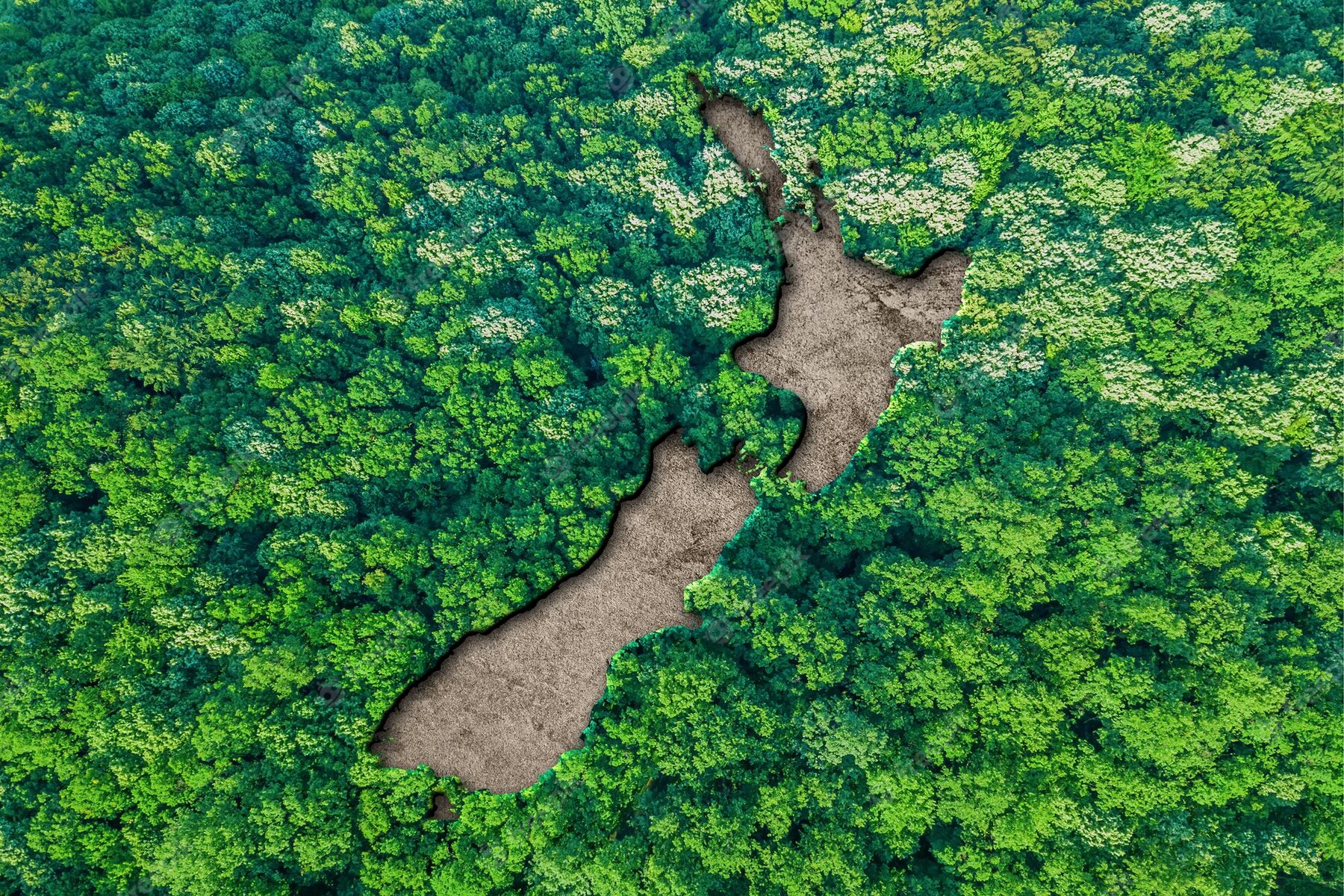Sustainable living practices in New Zealand: Tips and Tricks for Reducing Food Waste
Sustainable living practices in New Zealand: Tips and Tricks for Reducing Food Waste
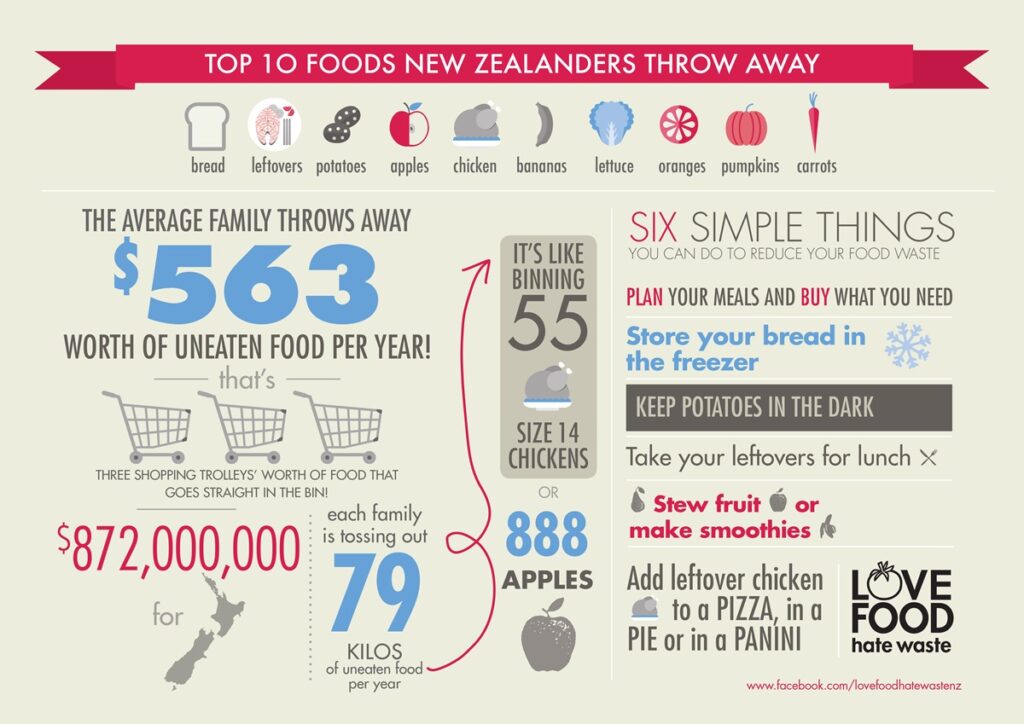
The importance of reducing food waste in New Zealand
Sustainable living practices in New Zealand start with Food waste, which is a major issue in New Zealand, with approximately 157,000 tonnes of food wasted each year. This is not only a waste of resources and money, but it also has a substantial environmental impact. We can save money, save resources, and cut greenhouse gas emissions by minimizing food waste.
According to the Love Food Hate Waste NZ campaign, New Zealand homes waste an estimated 157,398 tonnes of food per year, which is the equivalent of more than 271 jumbo planes. This waste accounts for around 20% of total food production in New Zealand. According to the campaign, the annual cost of food waste in New Zealand is around $1.17 billion. Moreover, food waste adds significantly to greenhouse gas emissions, as decaying food in landfills produces methane, a strong greenhouse gas that contributes to climate change. These figures emphasize the significance of taking steps for Sustainable living practices in New Zealand. In this piece, we’ll provide you with some pointers on how to reduce food waste in New Zealand.
What is food waste?
Any edible food that is wasted, misplaced, or goes uneaten is considered food waste. This can occur at any stage of the food supply chain, including production, processing, distribution, retail, and consumption. Food waste can take numerous forms, including uneaten leftovers, outdated or ruined food, and food discarded due to overproduction or cosmetic flaws. Food waste is a major problem across the world, with millions of tonnes of food wasted each year. This is not only a waste of resources and money, but it also has a huge environmental impact, contributing to greenhouse gas emissions and other negative environmental effects.
Tips for Reducing Food Waste in New Zealand
Sustainable living practices in New Zealand
New Zealand is well-known for its natural beauty and commitment to environmentally friendly living. New Zealand has introduced a number of sustainable living methods, including renewable energy, eco-tourism, and conservation activities, with an emphasis on environmental protection. Composting, minimizing trash, and supporting local agriculture are all habits that many New Zealanders value in their everyday lives. These projects are aimed at making New Zealand and the globe more sustainable.
1. Food Storage
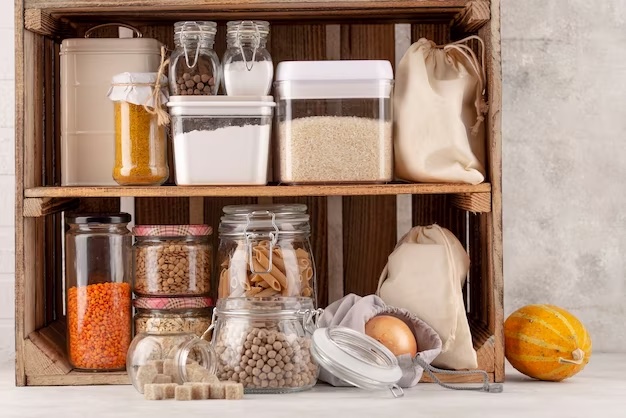
Effective food storage can help New Zealand reduce food wastage significantly. We may increase the shelf life of food by properly storing it and preventing it from rotting or going bad before we get a chance to use it. Here are some pointers on Food storage ideas to reduce waste:
Food should be stored in airtight containers to avoid rotting and to keep food fresh for extended periods of time. This is especially crucial for products like fruits and vegetables, which deteriorate fast.
Separate fruits and vegetables so Certain fruits, such as bananas and apples, emit ethylene gas as they develop, causing other fruits and vegetables to decay faster. You can increase the shelf life of both types of vegetables by keeping them separate.
Freeze leftovers If you don’t believe you’ll consume leftovers within a few days, try freezing them for future meals. This can assist to keep them from spoiling and being thrown away.
Labeling and organizing your fridge and pantry, as well as marking things with expiration dates, can assist you to prevent forgetting about food that is going to expire. This will allow you to use it up before it spoils.
2. Meal Planning
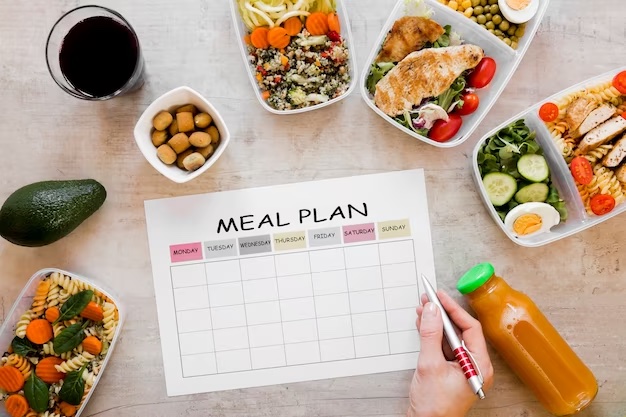
Sustainable living practices in New Zealand like Meal planning for reducing food waste are an efficient approach to decreasing the same. Those who plan ahead may buy only what they need, utilize ingredients before they expire, and avoid purchasing more food than they can eat. Meal planning can help decrease food waste in New Zealand in the following ways:
Plan meals based on what you already have: Before you go grocery shopping, check through your pantry, fridge, and freezer to see what you already have. Arrange your meals around these items to ensure that you use them up before they go bad.
Buy only what you need: With a meal plan in hand, you may create a list of the ingredients you require and avoid purchasing surplus food. This helps to keep food from rotting before it is consumed.
Use up Perishable items first: When preparing meals, prioritize perishable things that will go bad soon, such as fruits, vegetables, and dairy products. This helps to keep food from rotting and wasting.
Store food properly: Good food storage can help perishable foods last longer. Refrigerate fruits and vegetables, keep dry products in airtight containers, and use freezer bags to avoid freezer burn.
Repurpose leftovers: By transforming leftovers into new meals, you can keep them from going to waste. For example, create a stir-fry using leftover veggies or a salad with leftover chicken.
3. Composting
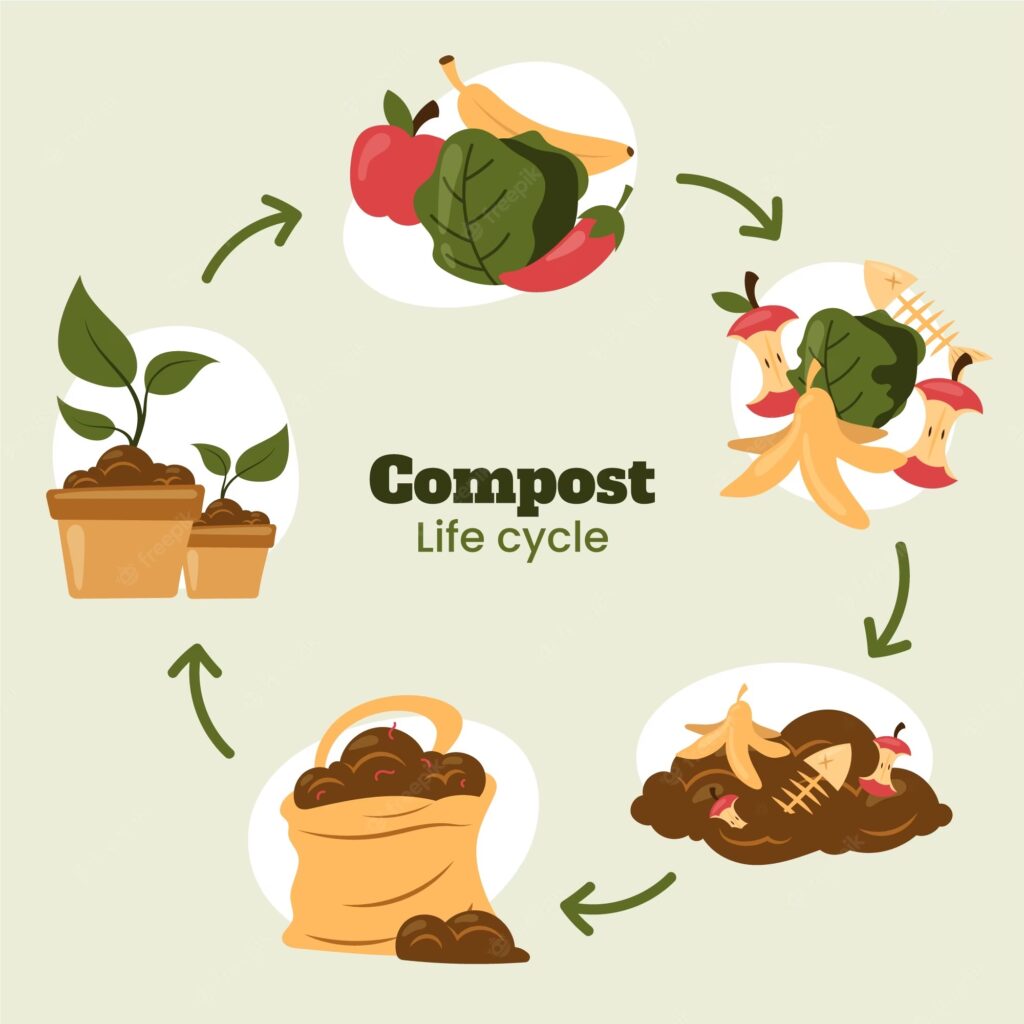
Sustainable living practices in New Zealand like composting are a good strategy to minimize food waste. Composting tips for beginners may remove garbage from landfills and generate nutrient-rich soil for gardening and farming by composting food scraps and other organic items. Environmentally friendly habits for Composting can help minimize food waste in New Zealand in the following ways:
Divert waste from landfills: Food waste contributes significantly to landfills, where it releases methane, a powerful greenhouse gas. Composting keeps food waste out of landfills, which reduces greenhouse gas emissions.
Create nutrient-rich Soil: Composting food scraps and other organic waste produces nutrient-rich soil that may be utilized for gardening and farming. This decreases the demand for synthetic fertilizers while also benefiting soil health.
Reduce food waste: Composting encourages people to think more about the food they waste, which leads to a reduction in overall food waste.
Improve soil Quality: Compost enhances soil quality by increasing its ability to store water, decreasing erosion, and boosting nutrient availability.
Promote Sustainable Living: Composting is a simple and practical approach to encourage sustainable living. It cuts down on waste, conserves resources, and promotes healthy ecosystems.
Composting may be done in a variety of methods in New Zealand, including backyard composting, worm composting, and communal composting. Individuals may lessen their environmental effects while supporting sustainable living by composting food waste.
Conclusion
Reduced food waste is an important step toward a more sustainable future in New Zealand. Millions of tons of food are thrown out each year, adding to greenhouse gas emissions, squandering resources, and damaging the environment. We can all help to reduce food waste by taking action and making little adjustments in our everyday lives.
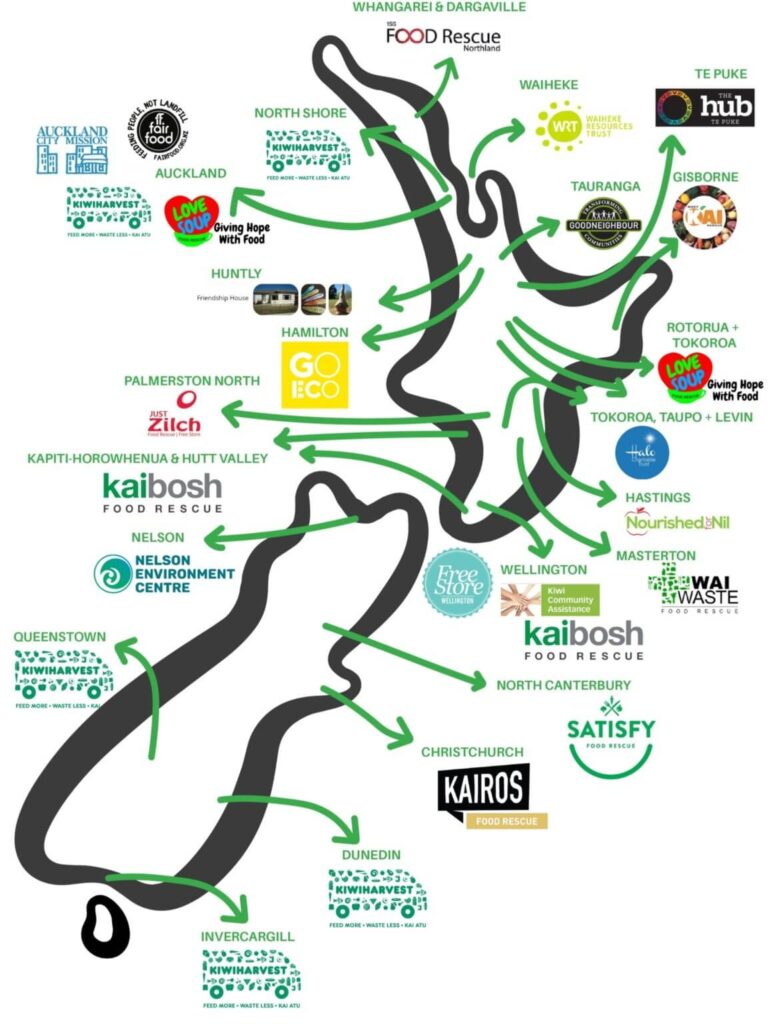
Here are some closing comments and motivations to take action in New Zealand to reduce food waste:
Start small: Avoiding food waste may appear daunting at first, but it is critical to begin small. Begin with easy activities such as meal planning, composting, and lowering portion sizes.
Spread the word: Invite friends, family, and coworkers to join you in decreasing food waste. Discuss the consequences of food waste and how to reduce it.
Support local initiatives: There are several local initiatives in New Zealand targeted at decreasing food waste, such as community gardens, food banks for Sharing food with the community, and composting programs. Volunteer or donate to help these efforts.
Learn More: There are several resources available to help you learn more about decreasing food waste. Look for websites, blogs, and publications that provide information and tips.
Celebrate progress: No matter how tiny, celebrate progress. Every move taken to reduce food waste contributes to a more sustainable future.
Reducing food waste is an important step toward more Sustainable living practices in New Zealand. We can all help to reduce food waste and create a better world for future generations by taking action, spreading the word, supporting local projects, learning more, and celebrating progress.
